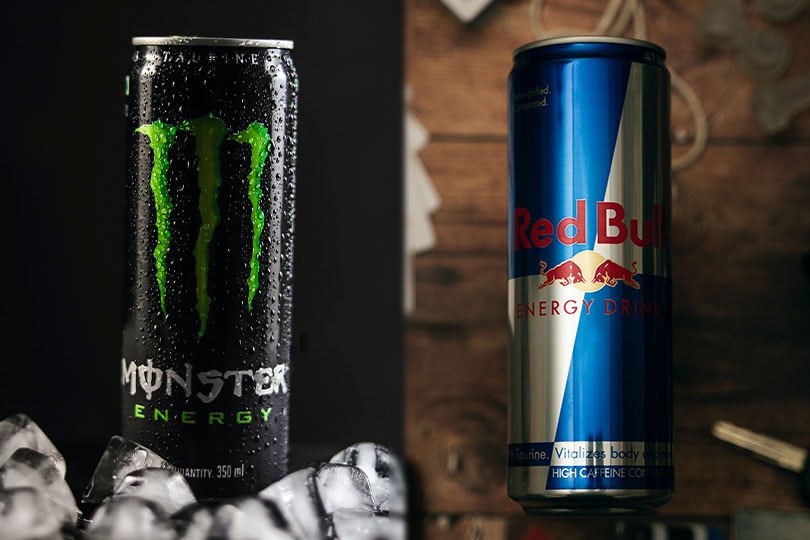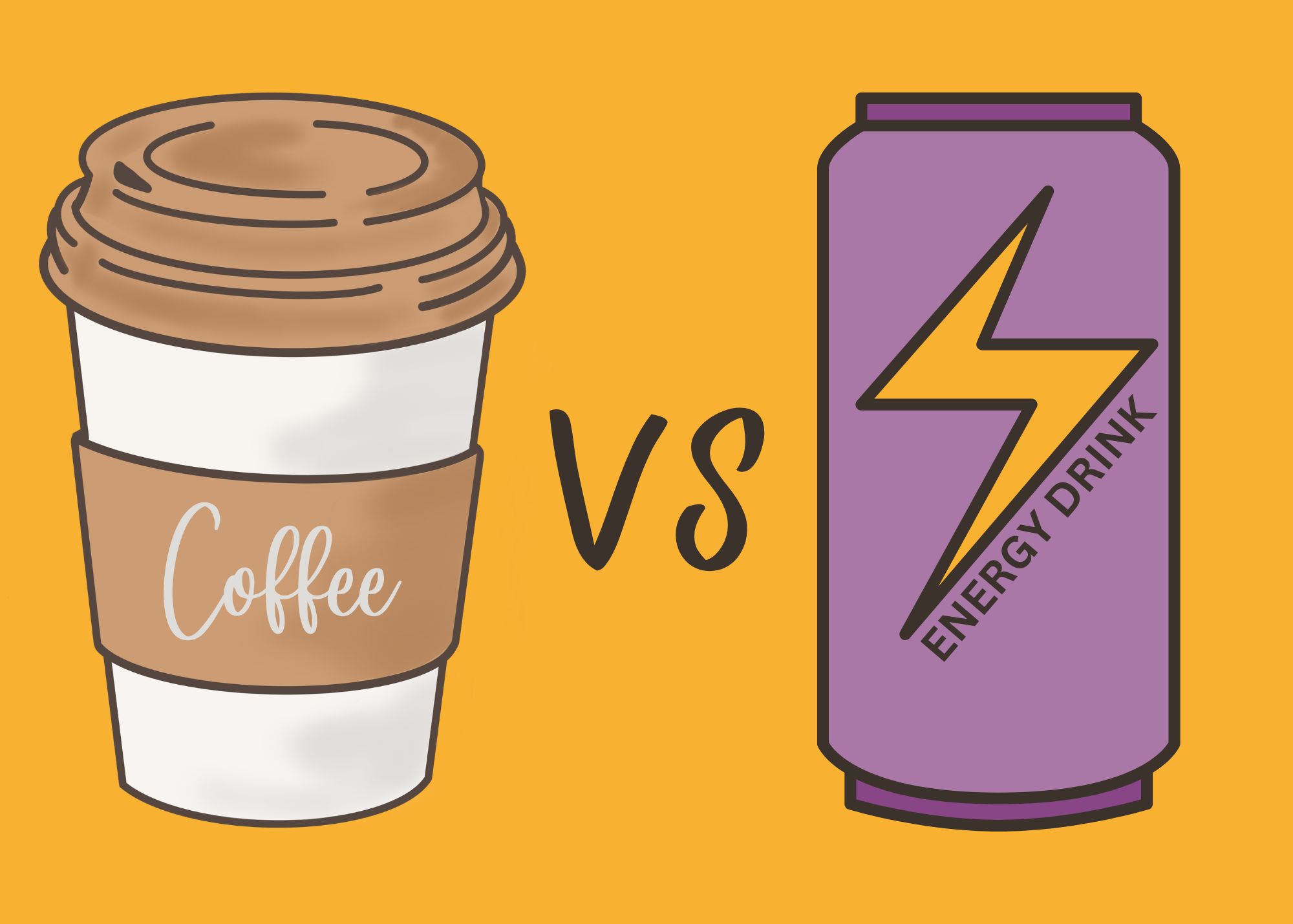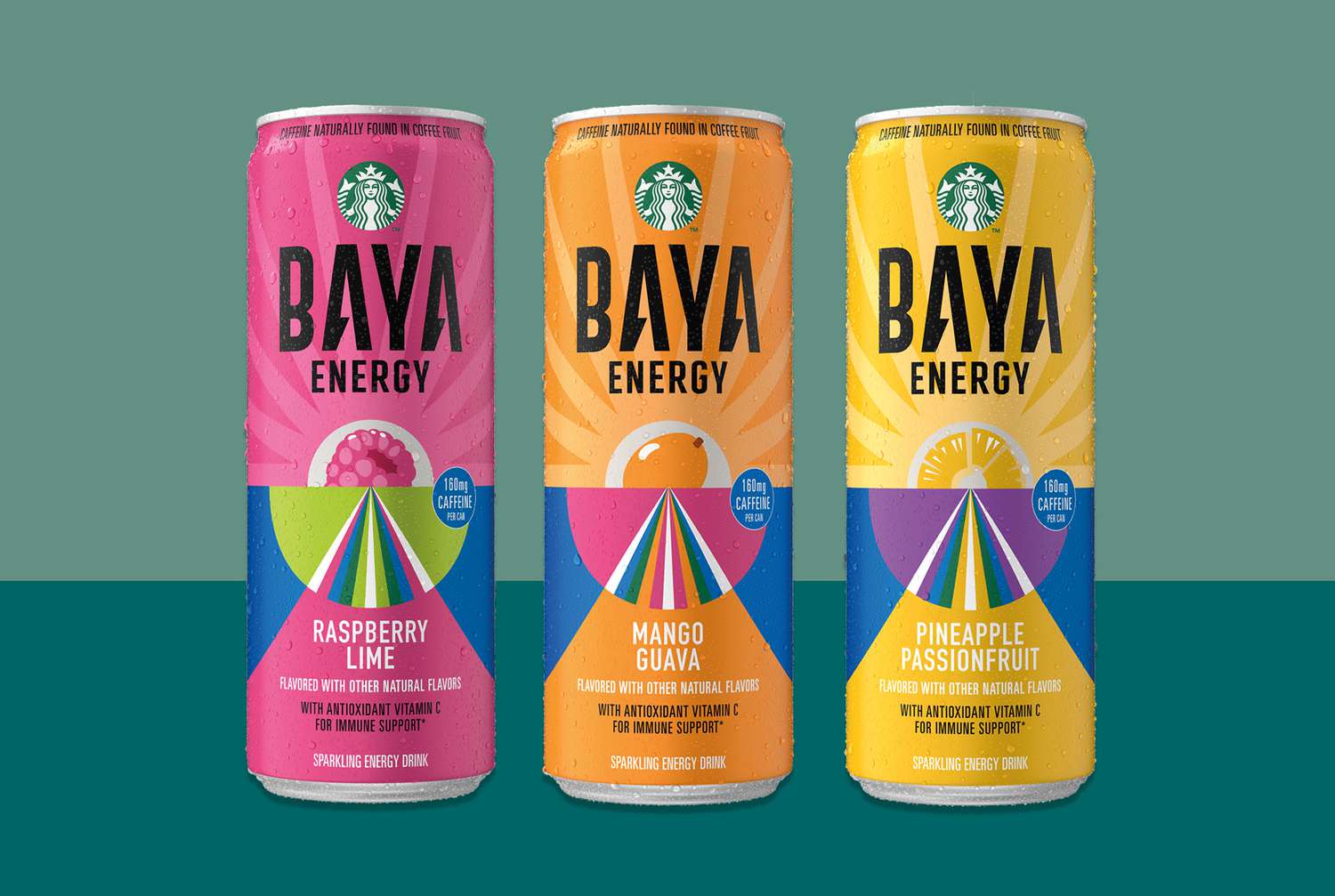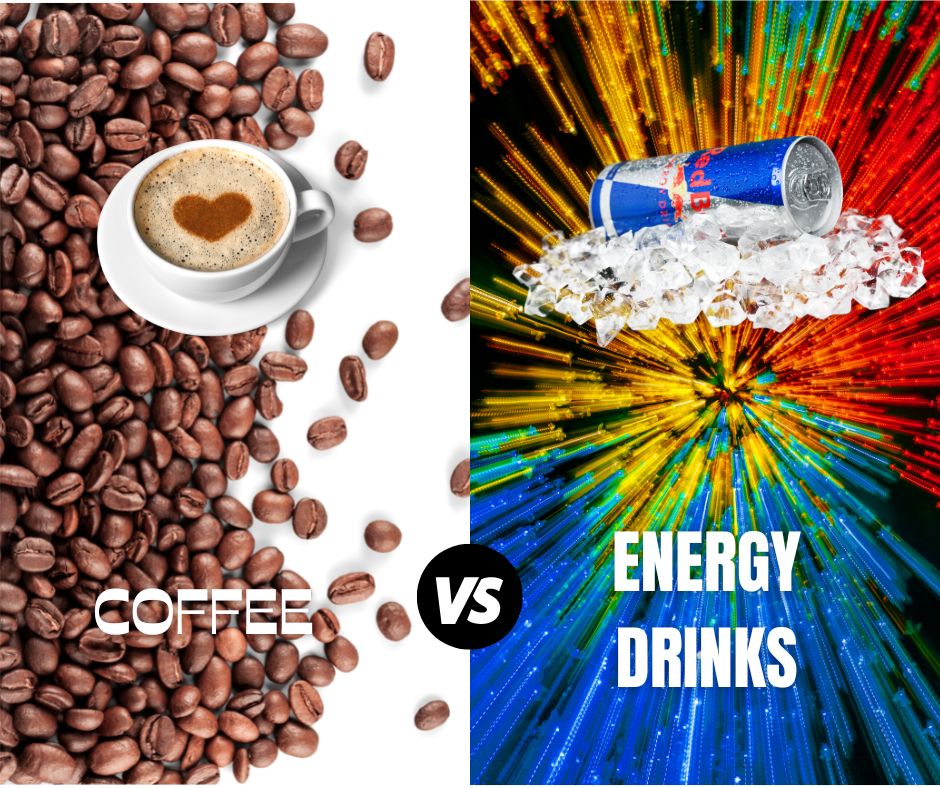I. Introduction
A. The Rise of Coffee and Energy Drinks The consumption of caffeinated beverages such as coffee and energy drinks has become increasingly prevalent, with individuals seeking these options for enhanced alertness and performance. As these beverages continue to gain popularity, the debate over which is healthier, coffee or energy drinks, remains a topic of interest, prompting a closer examination of their nutritional compositions and health implications.
B. Significance of Health in Beverage Choices In today’s health-conscious society, individuals are placing greater emphasis on the health impact of their dietary choices, including beverage consumption. As such, understanding the comparative health benefits and potential risks associated with coffee and energy drinks is crucial for making informed decisions regarding their consumption.
Nutritional Composition: Coffee’s Balanced Profile and Energy Drinks’ Added Components
The nutritional value of coffee lies in its rich content of essential nutrients and antioxidants with minimal caloric value. Components such as riboflavin, pantothenic acid, and manganese, combined with a notable antioxidant profile, make coffee an attractive choice for those seeking a nutrient-rich beverage. On the other hand, energy drinks often contain added sugars, artificial sweeteners, and vitamins, contributing to their caloric content. Carefully examining the nutritional profiles of these beverages is essential for assessing their overall health impact.

Caffeine Content: Understanding the Power of Caffeine
Coffee’s caffeine levels can vary based on factors such as brewing methods and bean type. Moderate caffeine intake has been associated with potential health benefits, such as improved cognitive function and physical performance. In contrast, energy drinks offer a potent dose of caffeine and other stimulants, aiming to provide a quick energy boost. However, the high caffeine concentration in energy drinks has raised concerns about their potential adverse impact on cardiovascular function and mental well-being when consumed in excess.
Health Effects: The Dynamic Influence on Well-Being
Moderate coffee consumption has been linked to potential health benefits, including reduced risks of certain diseases. Studies have suggested that it may lower the risk of type 2 diabetes, Parkinson’s disease, and certain types of cancer. In contrast, excessive consumption of energy drinks, particularly due to their high sugar content, has raised concerns about their potential adverse effects on cardiovascular health, mental well-being, and metabolic health.

Physical and Mental Impact: Enhancing Performance and Alertness
Coffee is known for its potential to enhance physical endurance and mental alertness. The moderate consumption of coffee has been associated with reduced fatigue, increased focus, and improved mood. On the other hand, energy drinks have gained popularity for their quick energy boost. However, concerns about their potential adverse effects on mental well-being, including irritability, anxiety, and disrupted sleep patterns, have been raised. Furthermore, excessive intake of energy drinks may pose implications for physical performance and recovery due to their high sugar content and caffeine levels.

Additional Ingredients: Maintaining Dietary Quality
While regular black coffee has minimal inherent health concerns, additives such as sugar-laden syrups, creamers, or flavorings can lead to increased caloric intake. Similarly, energy drinks often contain sweeteners, artificial flavors, and preservatives, which may impact weight management and metabolic health when consumed in excess.
Long-Term Health Considerations: Evaluating for Overall Well-Being
Long-term coffee consumption has shown potential benefits in reducing the risk of certain chronic diseases. Research suggests it may have a protective effect against cardiovascular diseases, neurodegenerative disorders, and certain types of cancer. However, long-term consumption has raised concerns about energy drinks. The cumulative impact of regular consumption on cardiovascular health, metabolic function, and mental well-being is a subject of ongoing concern and research.
Environmental Impact: Sustainability and Ethical Considerations
Coffee production, particularly when sourced through sustainable and ethical practices, can have a positive impact on the environment. Practices such as shade-grown coffee and organic certification contribute to biodiversity conservation and minimize the environmental impact of coffee cultivation. In contrast, the production and packaging of energy drinks often involve high levels of waste and energy consumption. Considering the environmental impact of these beverages can provide another dimension to the discussion of their overall health implications.

Socioeconomic Factors: Cultural and Economic Significance
Coffee plays a significant role in various cultures and economies around the world. Its production and consumption have both social and economic implications for communities involved in the coffee industry. The cultivation and trade of coffee contribute to the livelihoods of farmers and workers in coffee-growing regions. In contrast, energy drinks may have different socioeconomic implications, including their marketing and distribution, and potential impact on consumer behavior. Examining the cultural and economic significance of coffee and energy drinks can provide a broader understanding of their place in society and their overall impact on well-being.
These additional perspectives offer a holistic view of the health implications of coffee and energy drinks, considering their environmental and societal impact alongside their nutritional and health effects.
Ethical and Cultural Implications: Fair Trade and Social Responsibility
Coffee, particularly when sourced through fair trade and ethically responsible practices, can contribute to the social and economic well-being of coffee-producing communities. Fair trade initiatives seek to ensure that coffee farmers receive fair prices for their product, promoting sustainable livelihoods and community development. Ethical coffee consumption aligns with values of social responsibility and supports initiatives aimed at improving the living and working conditions of coffee farmers.
On the other hand, the ethical and cultural implications of energy drinks lie in their marketing strategies, especially in how they are marketed to different demographics. There are concerns about the potential targeting of vulnerable groups, such as young people and individuals seeking quick energy solutions. Evaluating the ethical and cultural dimensions of both coffee and energy drinks provides insight into their broader impact on society and consumer choices. Considering fair trade practices, ethical sourcing, and responsible marketing strategies contributes to a well-rounded assessment of the health implications of these beverages.
Conclusion: Informed Choices for Personal Well-Being
By understanding the nutritional components, caffeine content, and potential health effects of coffee and energy drinks, individuals can make informed choices aligned with their personal health and wellness goals. Navigating the complexities of beverage consumption means considering personal health status, dietary preferences, and the need for moderation in caffeine intake to promote overall well-being.
By expanding on each section, the article provides a comprehensive and detailed analysis of the health implications of coffee and energy drinks, aimed at helping readers make informed decisions for their personal well-being.
In conclusion, the health implications of coffee and energy drinks are multifaceted, encompassing considerations regarding their nutritional composition, caffeine content, potential health effects, and long-term impact. By evaluating the comparative health aspects of these beverages, individuals can make informed choices aligned with their personal health and well-being goals.
